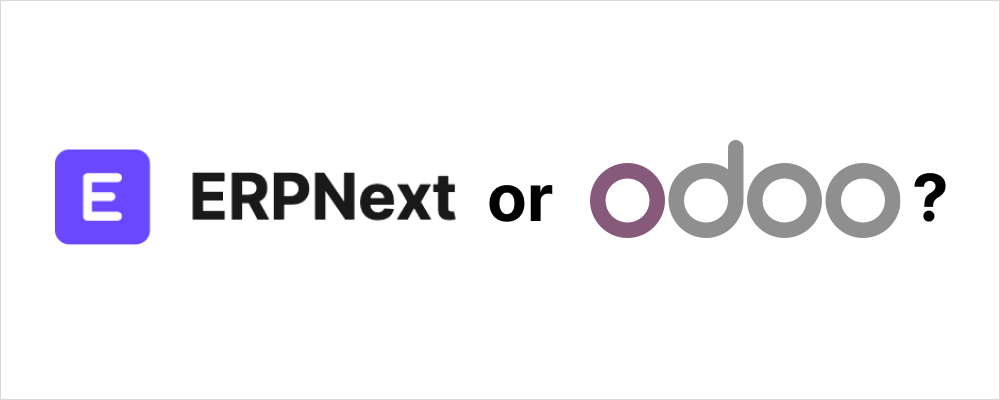ERPNext vs Odoo
Are both really open source application? Let's explore.

ERPNext vs Odoo: A Practical Comparison from an Implementer’s Point of View If you're considering a modern ERP system for your business, you’ve likely come across two major open-source options: ERPNext and Odoo. Both are powerful platforms, but they follow different paths in terms of pricing, customization, and business philosophy.
As someone who implements ERPNext professionally, I often help clients understand these differences to make the right decision. Here’s a practical, real-world comparison based on experience.
Open Source, But Not the Same ERPNext is fully open source, licensed under GPL v3. That means everything—from the core to the modules—is free to use, modify, and host anywhere. Odoo, on the other hand, offers a split model: its Community edition is open source, but many advanced features are only available in the Enterprise version, which is commercial and comes with a per-user cost.
If your business values open access to the full product and wants to avoid licensing fees, ERPNext is the more transparent choice.
What You Get Out of the Box With ERPNext, you get all core modules included: accounting, HR, payroll, manufacturing, CRM, inventory, projects, and more—right from the start. There are no extra costs for adding features. Odoo Community is more limited; key modules like payroll, advanced reporting, or full accounting tools are part of their paid tier.
That said, Odoo’s interface is modern and user-friendly. The UX is sleek and feels polished—especially in the Enterprise edition. ERPNext has a cleaner and simpler UI, and while it may take a bit longer to get used to, it’s consistent and effective once you understand the flow.
Customization & Flexibility Both platforms can be customized, but ERPNext offers full flexibility with its underlying Frappe framework (built in Python and JavaScript). Developers can build entirely new apps or extend existing ones with ease.
Odoo also supports customization, and with its paid Odoo Studio, users can do low-code modifications with drag-and-drop tools. However, this feature is only available in the Enterprise version, and major custom work might still need experienced developers.
Community and Support ERPNext has a strong, passionate open-source community. There’s constant development, community forums, and contributions from around the world. Odoo has a larger user base overall, but much of the support is focused around the Enterprise ecosystem and official partners.
If your company wants open community support and long-term freedom, ERPNext provides that without strings attached.
Localization and Compliance For Indian businesses especially, ERPNext has a big advantage. It includes GST features, Indian payroll, TDS, and other local requirements by default. Odoo also supports international compliance but often requires paid modules or third-party apps for Indian-specific needs.
Which One is Better? That depends on your priorities.
If you're looking for a free, open, and complete ERP that puts you in control, ERPNext is the better fit. It's ideal for small to medium businesses, manufacturers, service providers, educational institutions, and even NGOs.
If you want a system with a polished UI, lots of plug-and-play features, and are okay with licensing costs, Odoo Enterprise might suit you better—especially if you're in retail or e-commerce.
Want help choosing or implementing the right ERP system? Feel free to reach out for a consultation—I’d be happy to guide you.